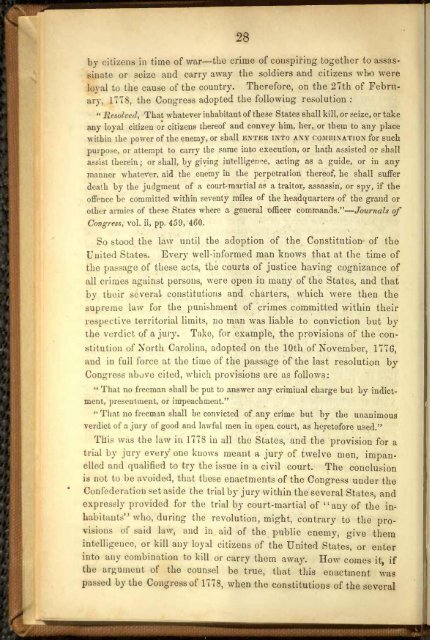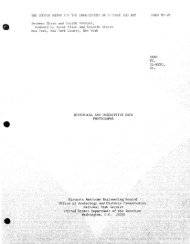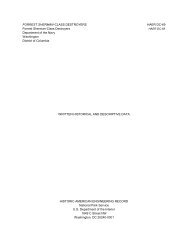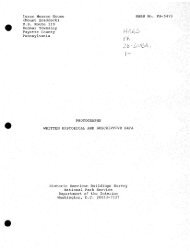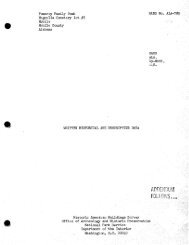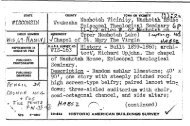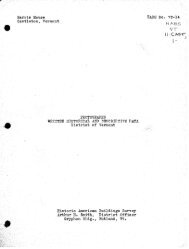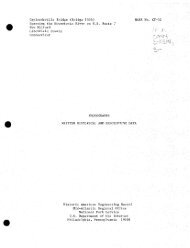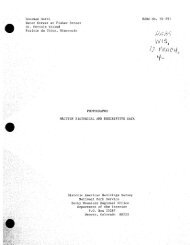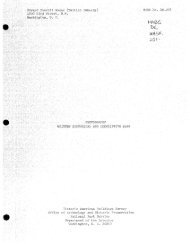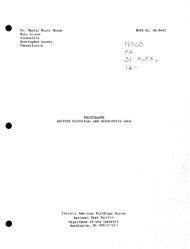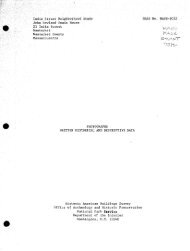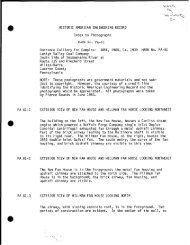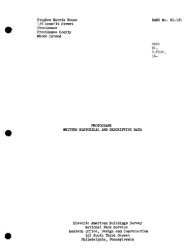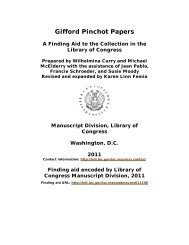Abraham Lincoln - American Memory
Abraham Lincoln - American Memory
Abraham Lincoln - American Memory
Create successful ePaper yourself
Turn your PDF publications into a flip-book with our unique Google optimized e-Paper software.
V<br />
wmm<br />
28<br />
by citizens in time of war—the crime of conspiring together to assas-<br />
sinate or seize and carry away the soldiers and citizens who were<br />
loyal to the cause of the country. Therefore, on the 27th of Febru-<br />
ary, 1773, the Congress adopted the following resolution :<br />
" Resolved, That whatever inhabitant of these States shall kill, or seize, or take<br />
any loyal citizen or citizens thereof and convey him, her, or them to any place<br />
within the power of the enemy, or shall ENTER INTO ANY COMBINATION for such<br />
purpose, or attempt to carry the same into execution, or hath assisted or shall<br />
assist therein; or shall, by giving intelligence, acting as a guide, or in any<br />
manner whatever, aid the enemy in the perpetration thereof, he shall suffer<br />
death by the judgment of a court-martial as a traitor, assassin, or spy, if the<br />
offence be committed within seventy miles of the headquarters of the grand or<br />
other armies of these States where a general officer commands."—Journals of<br />
Congress, vol. ii, pp. 459, 460.<br />
So stood the law until the adoption of the Constitution of the<br />
United States. Every well-informed man knows that at the time of<br />
the passage of these acts, the courts of justice having cognizance of<br />
all crimes against persons, were open in many of the States, and that<br />
by their several constitutions and charters, which were then the<br />
supreme law for the punishment of crimes committed within their<br />
respective territorial limits, no man was liable to conviction but by<br />
the verdict of a jury. Take, for example, the provisions of the con-<br />
stitution of North Carolina, adopted on the 10th of November, 1776,<br />
and in full force at the time of the passage of the last resolution by<br />
Congress above cited, which provisions are as follows:<br />
" That no freeman shall be put to answer any criminal charge but by indict-<br />
ment, presentment, or impeachment."<br />
** That no freeman shall be convicted of any crime but by the unanimous<br />
verdict of a jury of good and lawful men in open court, as heretofore used."<br />
This was the law in 1778 in all the States, and the provision for a<br />
trial by jury every one knows meant a jury of twelve men, impan-<br />
elled and qualified to try the issue in a civil court. The conclusion<br />
is not to be avoided, that these enactments of the Congress under the<br />
Confederation set aside the trial by jury within the several States, and<br />
expressly provided for the trial by court-martial of "any of the in-<br />
habitants" who, during the revolution, might, contrary to the pro-<br />
visions of said law, and in aid of the public enemy, give them<br />
intelligence, or kill any loyal citizens of the United States, or enter<br />
into any combination to kill or carry them away. How comes it if<br />
the argument of the counsel be true, that this enactment was<br />
passed by the Congress of 1778, when the constitutions of the several


